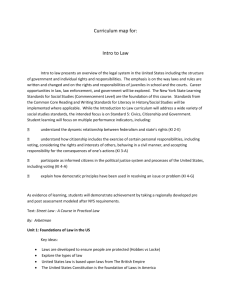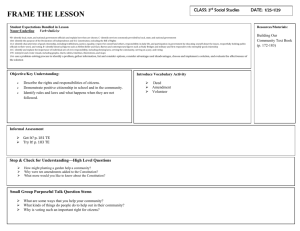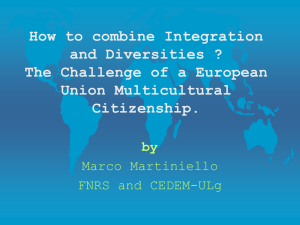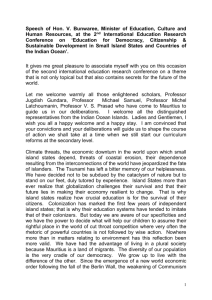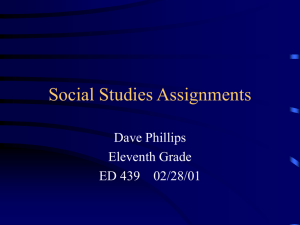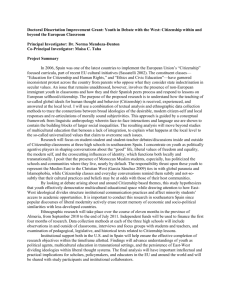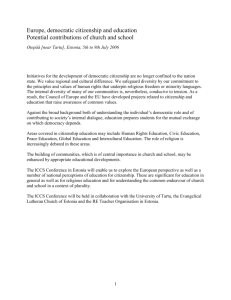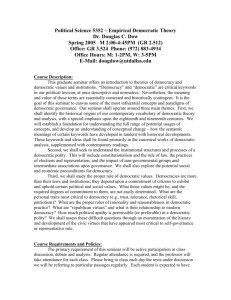Democracy, Citizenship, Diversity
advertisement
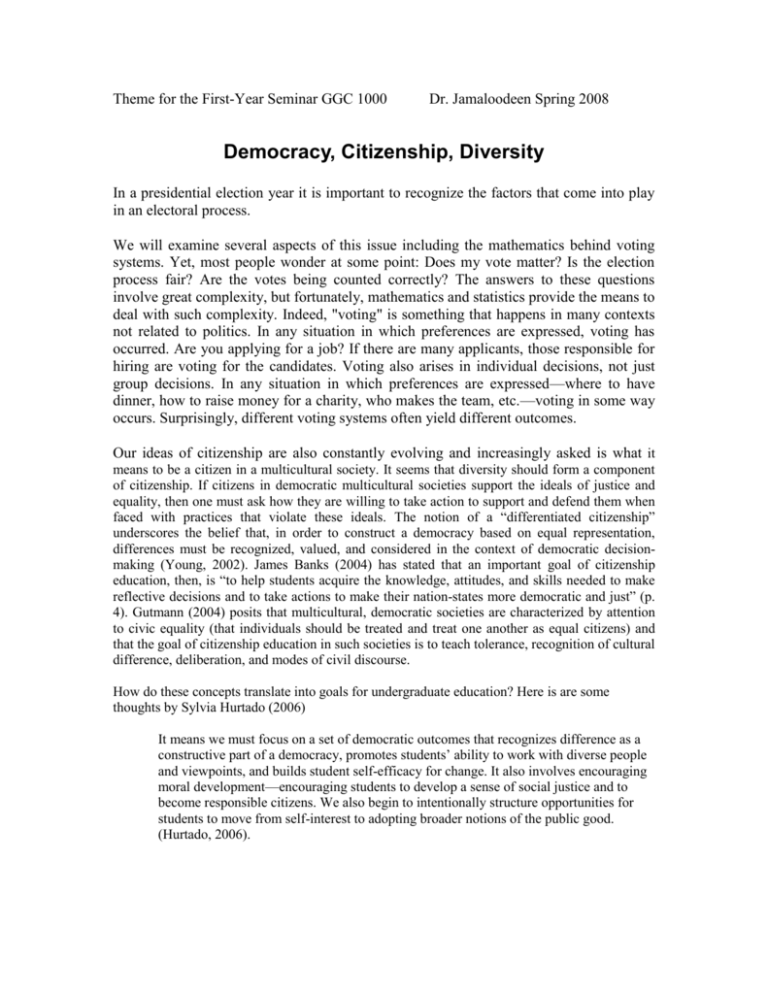
Theme for the First-Year Seminar GGC 1000 Dr. Jamaloodeen Spring 2008 Democracy, Citizenship, Diversity In a presidential election year it is important to recognize the factors that come into play in an electoral process. We will examine several aspects of this issue including the mathematics behind voting systems. Yet, most people wonder at some point: Does my vote matter? Is the election process fair? Are the votes being counted correctly? The answers to these questions involve great complexity, but fortunately, mathematics and statistics provide the means to deal with such complexity. Indeed, "voting" is something that happens in many contexts not related to politics. In any situation in which preferences are expressed, voting has occurred. Are you applying for a job? If there are many applicants, those responsible for hiring are voting for the candidates. Voting also arises in individual decisions, not just group decisions. In any situation in which preferences are expressed—where to have dinner, how to raise money for a charity, who makes the team, etc.—voting in some way occurs. Surprisingly, different voting systems often yield different outcomes. Our ideas of citizenship are also constantly evolving and increasingly asked is what it means to be a citizen in a multicultural society. It seems that diversity should form a component of citizenship. If citizens in democratic multicultural societies support the ideals of justice and equality, then one must ask how they are willing to take action to support and defend them when faced with practices that violate these ideals. The notion of a “differentiated citizenship” underscores the belief that, in order to construct a democracy based on equal representation, differences must be recognized, valued, and considered in the context of democratic decisionmaking (Young, 2002). James Banks (2004) has stated that an important goal of citizenship education, then, is “to help students acquire the knowledge, attitudes, and skills needed to make reflective decisions and to take actions to make their nation-states more democratic and just” (p. 4). Gutmann (2004) posits that multicultural, democratic societies are characterized by attention to civic equality (that individuals should be treated and treat one another as equal citizens) and that the goal of citizenship education in such societies is to teach tolerance, recognition of cultural difference, deliberation, and modes of civil discourse. How do these concepts translate into goals for undergraduate education? Here is are some thoughts by Sylvia Hurtado (2006) It means we must focus on a set of democratic outcomes that recognizes difference as a constructive part of a democracy, promotes students’ ability to work with diverse people and viewpoints, and builds student self-efficacy for change. It also involves encouraging moral development—encouraging students to develop a sense of social justice and to become responsible citizens. We also begin to intentionally structure opportunities for students to move from self-interest to adopting broader notions of the public good. (Hurtado, 2006). References Banks, J. A. (Ed.) (2004). Diversity and citizenship education: Global perspectives. San Francisco: Jossey-Bass. Gutmann, A. (2004). Unity and diversity in democratic multicultural education: Creative and destructive tensions. In J. A. Banks (Ed.), Diversity and citizenship education: Global perspectives (pp. 71–96). San Francisco: Jossey-Bass. Hurtado, S. (2006). Diversity and learning for a pluralistic democracy. In W. R. Allen, M. Bonous-Hammarth, & R. Teranishi (Eds.), Higher education in a global society: Achieving diversity, equity, and excellence (pp. 249–293). Oxford, Eng.: Elsevier Publishers. Young, I. M. (2002). Inclusion and democracy. Oxford, Eng.: Oxford University Press.
